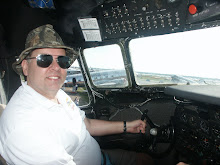The original letter that set this recent discussion off was a couple of months ago. The writer complained that he heard a station signing "London Radio" and thought he'd be talking to England, but was disappointed when the station was merely in the US.
That was probably me.
The writer insisted that everyone should just use the standard phonetics, and never anything else. While well intended, I'm afraid that the ICAO phonetics, while they work very well for aviation communications, don't always cut it.
"Romeo" -- this is just not a great word. It works OK most of the time, but not everyone in the world knows Shakespeare. "Radio" is a word that all hams know. It's the one phonetic that will get through when nothing else will.
"Lima" -- this is just a weak word. Watch your wattmeter when you say it -- it doesn't have that much punch. Using it, I get all kinds of guys who heard everything but the "Lima". They think it is "Charlie" or "Kilo" or "Echo" -- anything but "Lima". "London" works more often than not. About the only place that "Lima" is recognized well is in Central and South America.
"Alpha" -- try saying it twice. It comes out kinda funny. A lot of guys hear "Alpha Delta", but I also get "Delta Alpha" and "Papa Alpha" responses -- particularly from stations in europe who may be more familiar with those prefixes. At that point, the longer "America America" seems to work -- it communicates the letter as well as the country of origin.
In short, I've had this callsign for 25 years now. I've had all sorts of experience with what gets through and what doesn't. The standard ICAO phonetics don't cut it for my callsign. Pardon me if I use something a little unusual -- but it works. And isn't that what ham radio is about -- communicating?

I find I tend to use both the ICAO phonetics (November Juliet 8 Juliet) and the unofficial 'DX' phonetics (Norway Japan 8 Japan). The latter is shorter and seems to have a bit more 'punch', while the ICAO phonetics may be a bit more understandable. I use the DX phonetics when calling, and then switch over to the ICAO phonetics if the other guy is having trouble understanding my call.
ReplyDeleteof course you could use law enforcement phonetics, too.
ReplyDeleteadam, boy, charlie, david, frank, etc...